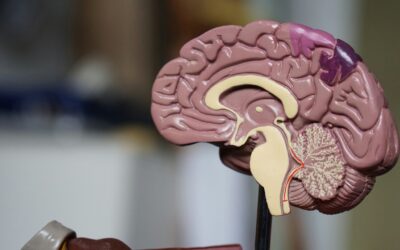Last updated: November, 2025
Attention Deficit Hyperactivity Disorder, often called ADHD, is more than a matter of distraction or restlessness. It is a neurodevelopmental condition that shapes how a person thinks, feels, and interacts with the world. Many live with intense energy, racing thoughts, and difficulty maintaining focus or organization. For some, this inner restlessness can become exhausting, creating a constant search for calm or stimulation.
When ADHD and addiction occur together, life can feel like a cycle of frustration and relief. Substances may seem to quiet the mind or bring clarity for a moment, but soon they deepen the imbalance. Understanding how ADHD and addiction influence each other is the first step toward recovery that feels steady and real.
At Hacienda Paradiso, recovery begins with awareness, structure, and compassion. Healing is not about controlling energy but learning how to guide it. Each person’s attention and sensitivity can become strengths once balance is restored.
The Link Between ADHD and Addiction
Research shows that adults with ADHD are several times more likely to experience substance use disorders than those without the condition. This is not due to weakness but to the way ADHD affects the brain’s reward and motivation systems.
The brain of someone with ADHD produces lower levels of dopamine, the chemical that helps regulate pleasure and motivation. Because of this, everyday experiences can feel less rewarding. Substances such as alcohol, nicotine, or cannabis may temporarily increase dopamine, creating a moment of relief. But over time, this quick fix reinforces dependency and makes natural motivation even harder to find.
Impulsivity and risk taking, common in ADHD, also contribute. Acting before thinking can lead to trying substances or engaging in addictive behaviors like gambling or gaming. What begins as curiosity can quickly turn into a habit, especially when combined with stress or emotional overload.
For many, substance use starts as an attempt to manage discomfort. When focus feels impossible or emotions seem too big, a drink, a pill, or a cigarette may appear to help. Yet the relief is fleeting. Addiction soon amplifies the very anxiety and restlessness it was meant to soothe.
Recognizing When ADHD and Addiction Intersect
Identifying addiction in someone with ADHD can be difficult because the two conditions often share similar signs. Inattention, mood swings, impulsive spending, or irregular sleep might seem like part of ADHD, but when these symptoms worsen with substance use, they may point to something deeper.
Common warning signs include escalating use of alcohol or drugs, difficulty meeting daily responsibilities, emotional instability, or secrecy about habits. These behaviors are not about lack of willpower. They are expressions of a nervous system under stress and in need of support.
Recognizing the overlap allows for early help and better outcomes. The sooner the cycle of self-medication is addressed, the easier it becomes to restore clarity, calm, and confidence.
Effective Recovery Strategies for ADHD and Addiction
Lasting recovery means addressing both ADHD and addiction together. Treating one while ignoring the other rarely works because they are deeply intertwined. An integrated approach supports attention, emotional balance, and self-awareness at the same time.
Medication management
Properly prescribed medication can help regulate attention and reduce impulsivity. For some, stimulant or non stimulant options stabilize mood and improve focus, creating the foundation for healthy routines. Medication alone is not enough, but it often opens the door to more effective therapy and daily progress.
Cognitive Behavioral Therapy (CBT)
Cognitive Behavioral Therapy helps individuals recognize unhelpful thinking patterns and replace them with realistic, balanced perspectives. People learn to pause before reacting, manage stress, and set achievable goals. CBT also offers practical tools to prevent relapse by strengthening decision-making and emotional regulation.
Mindfulness and self-regulation
Mindfulness practices such as deep breathing, grounding, and gentle meditation teach the brain to slow down. Over time, these techniques build patience and awareness. When the mind becomes calmer, focus improves and impulsivity lessens.
Structured routines
For individuals with ADHD, structure is freedom. Simple schedules, consistent sleep, and predictable meals bring calm to the day. Routines reduce chaos and make it easier to resist impulsive urges. Many people find that writing down daily tasks or using reminders helps transform distraction into focus.
Family and community support
Healing happens in connection. Family therapy and peer groups offer understanding and accountability. When loved ones learn about ADHD and addiction, they can provide encouragement without judgment, creating a stable base for recovery.
Why Integrated Treatment Works
ADHD and addiction share the same biological and emotional roots: difficulty with regulation, reward, and stress. Treating both together brings faster and deeper healing. Addressing only addiction can leave attention problems unmanaged, leading to relapse. Focusing only on ADHD can ignore coping mechanisms that reinforce dependency.
Integrated treatment brings these threads together. Through a mix of therapy, medication, mindfulness, and structure, individuals learn to navigate their thoughts and emotions with greater control. Each new skill strengthens the ability to stay grounded during challenges.
Recovery does not mean silencing energy or eliminating intensity. It means learning to direct that energy toward stability, purpose, and creativity. For many, what once felt like chaos becomes the source of focus and resilience.
Frequently Asked Questions: ADHD and Addiction
The brain of someone with ADHD produces less dopamine, the neurotransmitter responsible for motivation and reward. Substances like alcohol or stimulants temporarily increase dopamine, offering quick relief. However, repeated use creates dependency and deepens imbalance. Understanding this biological link helps guide treatment that restores dopamine naturally through structure, mindfulness, and therapy.
Yes, when prescribed responsibly and monitored closely. Stimulant and non stimulant medications can improve focus, reduce impulsivity, and make therapy more effective. Doctors carefully adjust doses to avoid misuse. When combined with behavioral therapy and stable routines, medication becomes a safe and powerful part of recovery.
Cognitive Behavioral Therapy is one of the most effective approaches because it helps people identify and manage thought patterns that lead to impulsive behavior. Mindfulness-based therapies complement it by improving emotional awareness. Together, they strengthen coping skills, reduce relapse risk, and improve quality of life.
Small habits create stability. Regular sleep, balanced nutrition, physical activity, and short periods of quiet focus all support attention and emotional balance. Avoiding overstimulation—such as excessive caffeine, screens, or noise—protects the mind’s capacity to rest and focus. Over time, these simple routines make recovery sustainable.
Families play an essential role. Learning about ADHD and addiction helps replace frustration with understanding. Gentle boundaries, consistent communication, and celebrating effort build safety and trust. Family therapy can strengthen relationships and teach practical ways to offer support without enabling unhealthy patterns.
Recovery is not only about the individual. When the family learns to stay calm, listen, and encourage healthy routines, everyone begins to heal together.









